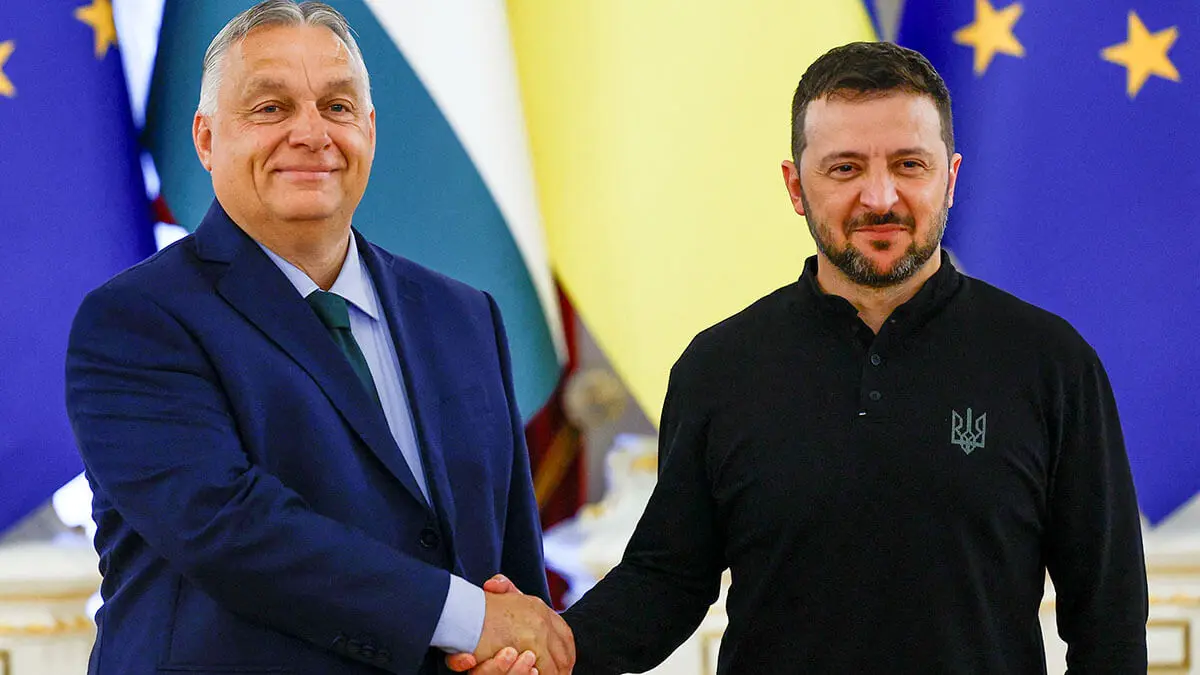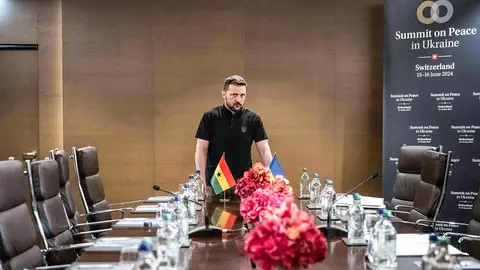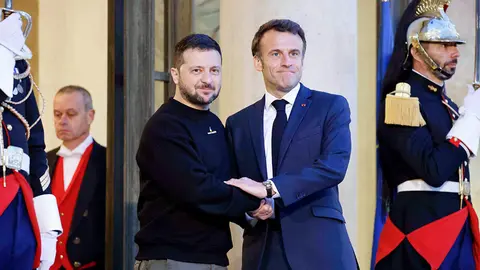Hungarian Prime Minister calls for "ceasefire" in Ukraine to speed up peace talks

Hungarian Prime Minister Viktor Orban, the current president of the Council of the European Union, called on Ukrainian President Volodymyr Zelenski in Kiev on Tuesday to consider a "ceasefire" in the war with Russia.
"I asked the president to consider the possibility of a ceasefire quickly," said the nationalist leader, the only one in the EU close to the Kremlin, "which would be limited in time and would allow to speed up peace negotiations".
Zelenski insisted on the importance of a "just peace" for his country.
Orban, who had not visited Ukraine since the start of the Russian invasion, said the conversation with Zelenski was "frank".
"Of course, I will report [the content] of these discussions to the Council of the European Union (...) so that the necessary European decisions can be taken," he said.
The Ukrainian head of state also advocated maintaining Europe's military assistance to Kiev "at a sufficient level".
Orban, whose country has just taken over the EU's rotating presidency, is reluctant to provide European financial assistance to Ukraine, which is vital to the country in the face of Russian encroachment.
Earlier this year he vetoed a 50 billion euro (53 billion dollar) aid package that was eventually approved.
Despite these differences, the Hungarian leader expressed his desire to "improve" bilateral relations.
Ukraine considers the withdrawal of Russian forces from its territory a prerequisite for peace, while Russia says Kiev must cede five regions and give up its ambitions to join NATO.
Hungarian minority
Orban, a nationalist and Eurosceptic, has been in power since 2010 and opposed Ukraine's EU membership, judging that the country is not ready.
However, last December he finally left the table during a summit of the 27 EU countries, allowing the remaining 26 to open accession negotiations with Kiev.
Asked about Orban's trip to Ukraine, the Kremlin said it expected "nothing" from him. However, spokesman Dmitry Peskov described the Hungarian as a man who "firmly defends the interests of his country".
The Hungarian leader disapproves of the European sanctions voted against Russia and is trying to soften them.
He has repeatedly called Russia's invasion of Ukraine a 'military operation', using the same euphemism the Kremlin uses to avoid talking about war.
The dispute between Kiev and Budapest is not new and diplomatic relations were already strained before the invasion, because Ukraine has since 2017 adopted controversial measures, in particular on language teaching in Transcarpathia, a Ukrainian region that until the First World War was administered by Hungary and is today inhabited by 100,000 Magyars.
Hungary has also received far fewer refugees than most EU members.
Orban's visit comes at a difficult time for the Ukrainian army, which is short of troops and weapons. Russian forces have recently claimed the capture of several villages in the east of the country.










